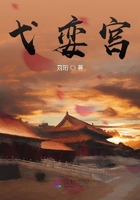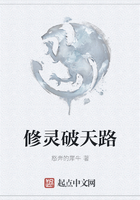By and by certain young men began to come regularly to hear the words of wisdom of this great teacher. They brought copybooks with them and a little bottle of ink and a goose quill and wrote down what seemed to be important. One day it rained.
The teacher and his pupils retired to an empty basement or the room of the "Professor." The learned man sat in his chair and the boys sat on the floor. That was the beginning of the University, the "universitas," a corporation of professors and students during the Middle Ages, when the "teacher" counted for everything and the building in which he taught counted for very little.
As an example, let me tell you of something that happened in the ninth century. In the town of Salerno near Naples there were a number of excellent physicians. They attracted people desirous of learning the medical profession and for almost a thousand years (until 1817) there was a university of Salerno which taught the wisdom of Hippocrates, the great Greek doctor who had practiced his art in ancient Hellas in the fifth century before the birth of Christ.
Then there was Abelard, the young priest from Brittany, who early in the twelfth century began to lecture on theology and logic in Paris. Thousands of eager young men flocked to the French city to hear him. Other priests who disagreed with him stepped forward to explain their point of view. Paris was soon filled with a clamouring multitude of Englishmen and Germans and Italians and students from Sweden and Hungary and around the old cathedral which stood on a little island in the Seine there grew the famous University of Paris.
In Bologna in Italy, a monk by the name of Gratian had compiled a text-book for those whose business it was to know the laws of the church. Young priests and many laymen then came from all over Europe to hear Gratian explain his ideas.
To protect themselves against the landlords and the innkeepers and the boarding-house ladies of the city, they formed a corporation (or University) and behold the beginning of the university of Bologna.
Next there was a quarrel in the University of Paris. We do not know what caused it, but a number of disgruntled teachers together with their pupils crossed the channel and found a hospitable home in n little village on the Thames called Oxford, and in this way the famous University of Oxford came into being. In the same way, in the year 1222, there had been a split in the University of Bologna. The discontented teachers (again followed by their pupils) had moved to Padua and their proud city thenceforward boasted of a university of its own. And so it went from Valladolid in Spain to Cracow in distant Poland and from Poitiers in France to Rostock in Germany.
It is quite true that much of the teaching done by these early professors would sound absurd to our ears, trained to listen to logarithms and geometrical theorems. The point however, which I want to make is this--the Middle Ages and especially the thirteenth century were not a time when the world stood entirely still. Among the younger generation, there was life, there was enthusiasm, and there was a restless if somewhat bashful asking of questions. And out of this turmoil grew the Renaissance.
But just before the curtain went down upon the last scene of the Mediaeval world, a solitary figure crossed the stage, of whom you ought to know more than his mere name. This man was called Dante. He was the son of a Florentine lawyer who belonged to the Alighieri family and he saw the light of day in the year 1265. He grew up in the city of his ancestors while Giotto was painting his stories of the life of St. Francis of Assisi upon the walls of the Church of the Holy Cross, but often when he went to school, his frightened eyes would see the puddles of blood which told of the terrible and endless warfare that raged forever between the Guelphs and the Ghibellines, the followers of the Pope and the adherents of the Emperors.
When he grew up, he became a Guelph, because his father had been one before him, just as an American boy might become a Democrat or a Republican, simply because his father had happened to be a Democrat or a Republican. But after a few years, Dante saw that Italy, unless united under a single head, threatened to perish as a victim of the disordered jealousies of a thousand little cities. Then he became a Ghilbeiline.
He looked for help beyond the Alps. He hoped that a mighty emperor might come and re-establish unity and order.
Alas! he hoped in vain. The Ghibellines were driven out of Florence in the year 1802. From that time on until the day of his death amidst the dreary ruins of Ravenna, in the year 1321, Dante was a homeless wanderer, eating the bread of charity at the table of rich patrons whose names would have sunk into the deepest pit of oblivion but for this single fact, that they had been kind to a poet in his misery. During the many years of exile, Dante felt compelled to justify himself and his actions when he had been a political leader in his home-town, and when he had spent his days walking along the banks of the Arno that he might catch a glimpse of the lovely Beatrice Portinari, who died the wife of another man, a dozen years before the Ghibelline disaster.
He had failed in the ambitions of his career. He had faithfully served the town of is birth and before a corrupt court he had been accused of stealing the public funds and had been condemned to be burned alive should he venture back within the realm of the city of Florence. To clear himself before his own conscience and before his contemporaries, Dante then created an Imaginary World and with great detail he described the circumstances which had led to his defeat and depicted the hopeless condition of greed and lust and hatred which had turned his fair and beloved Italy into a battlefield for the pitiless mercenaries of wicked and selfish tyrants.















